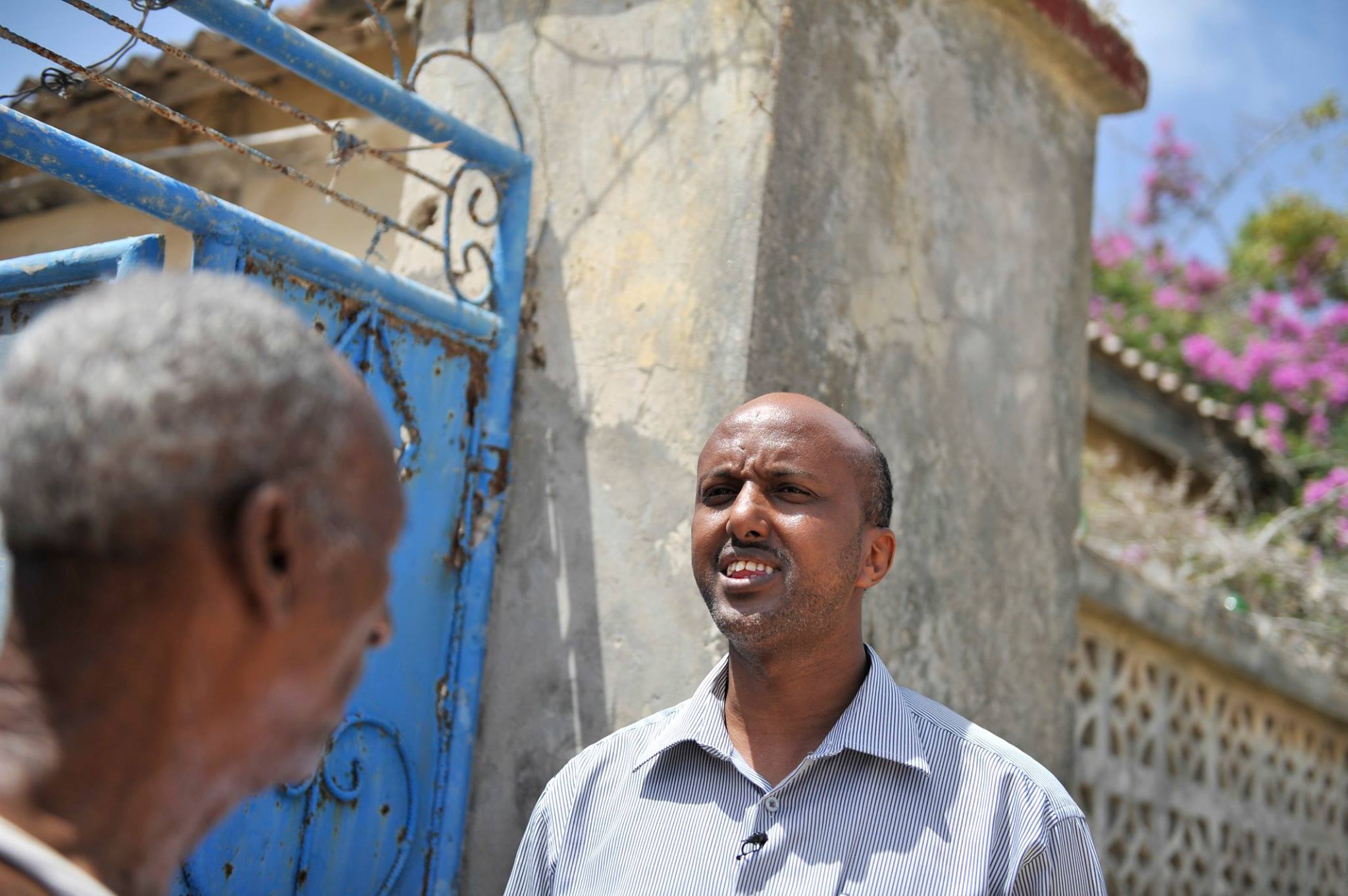Neighbourhood watch director resolute in restoring safety in Mogadishu

 When Abdikani Mohamed Hadi became the director of a new neighbourhood watch program, he hoped to improve safety and security in his community. However, the risks of this role became apparent last week when Mr. Hadi’s car was detonated close to his home.
When Abdikani Mohamed Hadi became the director of a new neighbourhood watch program, he hoped to improve safety and security in his community. However, the risks of this role became apparent last week when Mr. Hadi’s car was detonated close to his home.
Mr. Hadi, who works with the Benadir Regional Administration in Mogadishu, survived the explosion from an improvised-explosive-device (IED) that had been planted on his car on July 8th, and was back at work the next day.
A trained pilot, Mr. Hadi worked in South Africa with a non-governmental organization (NGO) before returning to Somalia in 2012. He formed the Benadir Neighbourhood Watch in August 2014 and since its inception, the programme has redefined community policing in a city where Al Shabaab blend into the communities, making it difficult for security agents to flush them out.
Mr. Hadi runs the community neighbourhood-watch in several districts in Mogadishu. Under this programme, clusters of houses are placed under the watch of one person who monitors for any unusual activities and reports back to the authorities.
“We have got different levels within the community neighbourhood system whereby it starts with the bottom line of 10 houses. A steering committee person is in charge of the 10 houses and every 15 houses comprise of a neighbourhood. Every area of over 200 houses becomes a sector and from every 4 sectors which is almost 800 to 1000 houses becomes a division. Every 4 divisions become a suburb and every 4 suburbs becomes a district.” Mr. Hadi explained.
As the director of the neighbourhood watch program, Mr. Hadi’s work requires resilience and personal sacrifice. He is well aware that the work which gives him purpose also poses a threat to his life.
“My car was detonated with a bomb and exploded. Luckily I had just parked like one hour and a half ago in that area and I went to my house and I stayed longer. That’s why maybe they were targeting and waiting for me and thank God it never happened and it never got me. But it doesn’t mean that we have to give up, that we have to be afraid and say that because it has happened we have become a target of explosions, not even a gun bullet which is something bigger,” he said.
It is not the first time that Mr. Hadi has been targeted by Al Shabaab, but he is determined to continue his efforts to make Mogadishu a safer place.
“This makes us take more precautions, to say that now we are more targeted, then we must be conscious about it. But it doesn’t stop our work. We will do it as much as we can. We will enhance work we are doing because of our courage. We believe this is the only thing that can bring peace to the whole of Mogadishu,” he said.
Based on information gathered through the neighbourhood watch program, the Somali police and military, with the help of partners, have been able to carry out impromptu cordon-and-search operations to flush out the militants from their hideouts.
Another positive outcome of the programme is the increased social cohesion in the community. Neighbours now pull together to provide assistance to the needy in their locality.
“There was a report and parents were saying they could not afford to teach their children and pay their school fees and asking for help. We got involved and tried to help. So in other words, it’s an issue that covers every part of life within the community, although primarily it plays a role in maintaining security,” Mr. Hadi said.
This model of community policing, though new to Somalia, may be the answer to the complex challenges of dealing with hidden security threats and restoring safety and stability to its urban dwellings.